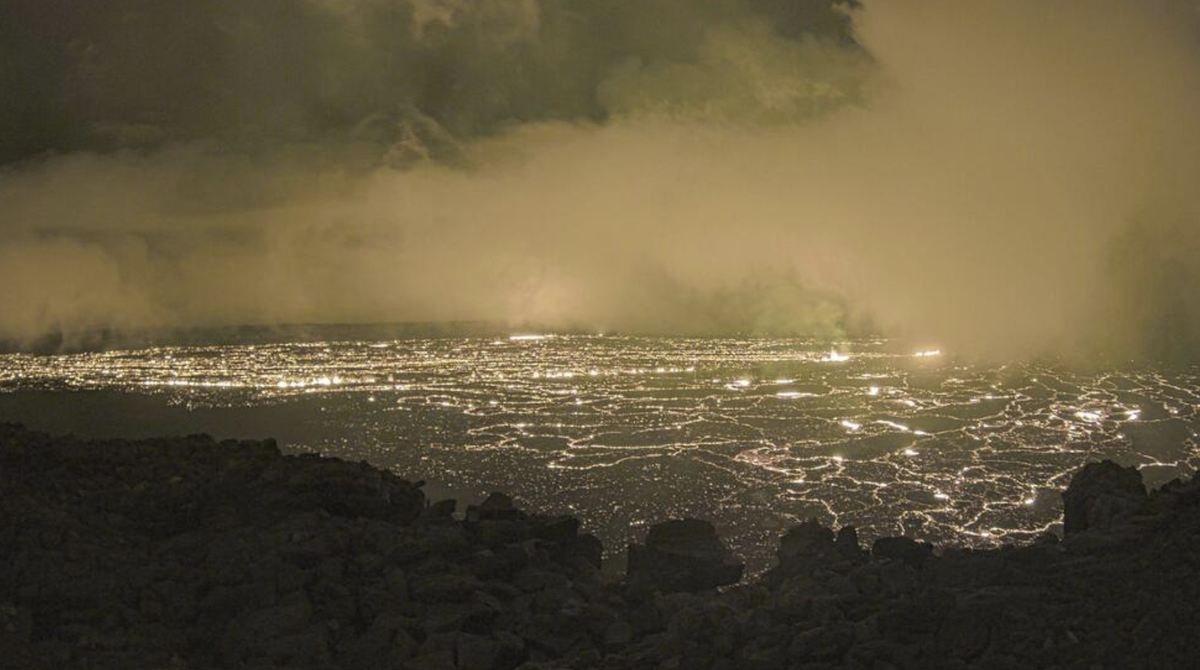How does climate change impact volcanic eruptions?

Hawaii’s Mauna Loa, the largest active volcano on the planet, has erupted for the first time in nearly four decades.
The eruption on the state’s Big Island began at around 11.30pm local time on Sunday in Mokuaweoweo, the summit caldera of the volcano, according to the National Weather Service.
Lava flows are contained to the summit area, around 2.5miles above sea level, with no threat to communities downslope but the situation is being closely monitored as it can change rapidly.
The eruption has triggered dozens of earthquakes with one registering at 4.2 on the richter scale.
While the eruption of Mauna Loa is a rare occurrence, the climate crisis could lead to more volcanic activity, some scientists say.
The greenhouse gas emissions heating the planet are melting glaciers and in turn destabilizing mountains, creating conditions for volcanic eruptions that were previously restrained.
“Imagine the ice like some sort of protective layer – when the ice melts away, the mountain is free to collapse,” Gioachino Roberti, a PhD student researching volcanic activity at the University of Clermont Auvergne, previously toldThe Independent. “If your mountain is a volcano you have another problem. Volcanoes are a pressurised system and if you remove pressure by ice melting and landslide, you have a problem.”
The 2018 study looked at Mount Meager, a glaciated volcano north of Vancouver, Canada. Its last eruption was more than 2,000 years ago, but Roberti focused on Mount Meager after a massive landslide occurred on the southern slope of the volcano in 2010.
This was followed in 2016 by the formation of ice caves in the glacier as hot volcanic gases seeped out of the volcano.
The study used numerical modelling of the volcano to examine the link between melting ice and changes to the magma “plumbing system” inside. They found that landslides had the potential to destabilise the magma chamber and trigger an eruption – a phenomenon that can be linked directly to a warmer climate.
Other scientists noted the complexity of the systems and the difficulty in making direct links between the climate crisis and eruptions.
“Eruptions are triggered by a complex array of factors,” Professor David Rothery, a geoscientist at The Open University who was not involved in the research, said. “I suspect that many eruptions caused by glacial melting might happen eventually anyway, given enough time – but this research shows that warming could increase the chances of those eruptions happening sooner rather than later.”
An international team of scientists is currently undertaking groundbreaking research into whether the climate crisis influences volcanic eruptions and the frequency of earthquakes.
Off the east coast of New Zealand’s North Island, the team has collected a 500-metre long core from beneath the seafloor, a record of all the sediment and material deposited over the last 800,000 years.
By analyzing each layer, the scientists will build up a picture of how earthquakes and volanic eruptions have occurred over milennia. Once completed in early 2024, scientists are expected to be able to say more definitively whether or not there is a causal link between climate and the frequency of volcanic eruptions and earthquakes.

